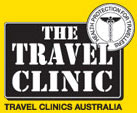Malaria is caused by a parasite (protozoa of the genus Plasmodium), which is transmitted through the bite of an infected female of the Anopheline mosquito.
- The mosquito feeds on human blood and transmits the parasite, which invades the liver and then the red blood cells
- Symptoms typically include fever, rigors (uncontrollable shaking) headache, backache, nausea, vomiting, stomach, muscle and joint pains and hallucinations. There may also be jaundice, respiratory and gastrointestinal symptoms. Symptoms may disappear only to recur days later
- Malaria, which is on the rise worldwide, can cause serious illness and possibly death if not treated quickly
- There is no vaccine for malaria. It is still possible to contract malaria, even with preventative care. Protection includes avoiding being bitten by mosquitoes and by taking anti-malaria medications
- Malaria can be effectively treated early in the course of disease
Post travel
Malaria can occur for up to a year after leaving a malarious area, even if a traveller took antimalarial medications. Therefore see you doctor if you fall ill during that year with unexplained fever.


